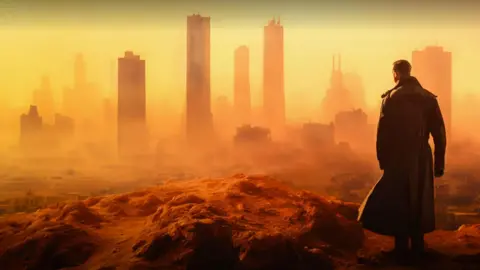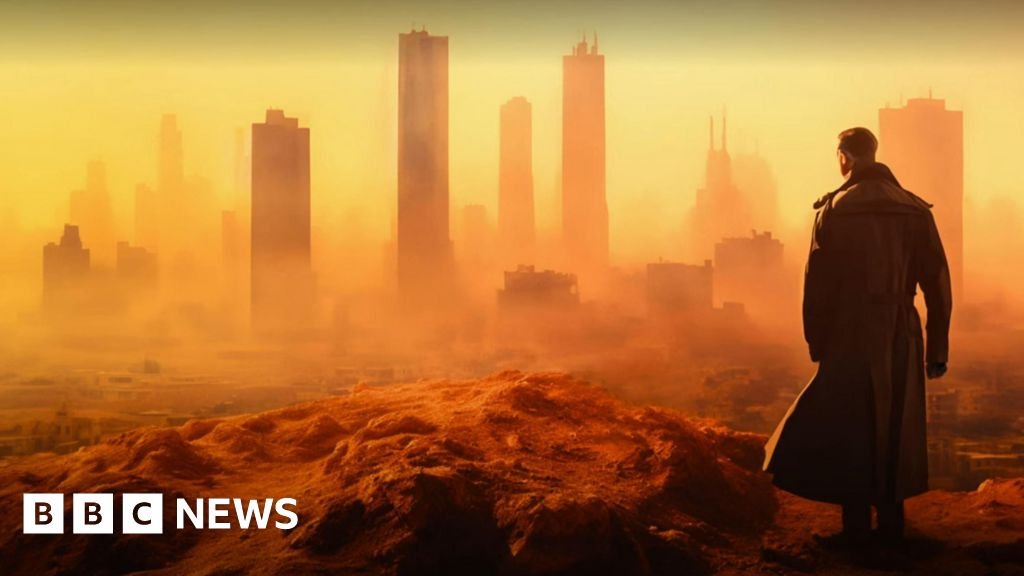
Alcon Entertainment, the production company behind the acclaimed film Blade Runner 2049, has filed a lawsuit against Tesla, Elon Musk, and Warner Bros. Discovery, accusing them of unauthorized use of the film’s imagery during Tesla’s highly anticipated self-driving taxi launch event. The lawsuit claims that Tesla and event organizers used visual elements from the iconic film without permission, sparking legal tensions over intellectual property rights.
According to Alcon Entertainment, Warner Bros. had approached them with a request to use specific footage from Blade Runner 2049 in promotional materials for Tesla’s robotaxi launch event, which took place on October 10. However, Alcon states that they “categorically rejected” Warner Bros.’ request. Despite this, the company alleges that Tesla and other organizers proceeded to use imagery related to the film, allegedly generated using artificial intelligence (AI), to promote the event.
The lawsuit expresses Alcon’s frustration with the situation, emphasizing the scale of the misuse. “The scale of misappropriation here is enormous,” the legal filing states, accusing Tesla of unlawfully using Blade Runner 2049’s visual elements to associate their brand with the futuristic world depicted in the film.
In addition to accusing Tesla and Warner Bros. of unauthorized use, the lawsuit also points to the potential reputational damage for Alcon. The production company claims that Tesla’s decision to use the imagery without consent led to a “false endorsement,” falsely suggesting an official connection between Alcon and Tesla’s robotaxi initiative.
“The event organizers created the illusion of an official partnership between our production company and Tesla,” the lawsuit contends. This, according to Alcon, could have long-lasting negative impacts on their brand, as they were unwillingly tied to Tesla’s high-profile and often controversial founder, Elon Musk.
The legal action goes further, criticizing Musk’s public behavior, which the lawsuit describes as “highly politicized, erratic, and arbitrary.” Alcon warns that brands considering collaborations with Tesla should be aware of Musk’s potential to engage in behavior that sometimes “veers into hate speech.” Such an association, Alcon argues, could harm their own reputation, which is carefully managed within the entertainment industry.
Warner Bros., who distributed Blade Runner 2049, was also involved in the organization of the robotaxi event, which took place at one of its movie studios. Despite their request being denied by Alcon, the lawsuit claims that Warner Bros. allowed the event to proceed using Blade Runner-inspired elements.
The lawsuit is a significant step for Alcon, as they aim to protect their intellectual property and brand image. Blade Runner 2049, the 2017 sequel to the iconic 1982 cyberpunk film Blade Runner, starring Ryan Gosling, Harrison Ford, Ana de Armas, and Jared Leto, won two Academy Awards and continues to be a cultural touchstone in the realm of science fiction. Its dark, dystopian aesthetic and themes of artificial intelligence and futuristic technology seem to have inspired Tesla’s vision for their self-driving robotaxis.
Neither Tesla nor Warner Bros. has responded to the lawsuit or issued any public comment at this time. The legal battle may shed light on the increasing tensions between Hollywood and tech companies as they navigate the complexities of intellectual property in the age of AI and advanced technology.
As the lawsuit unfolds, it will be interesting to see how it impacts both Tesla’s branding and the broader conversation about the use of creative content in tech-driven promotional events.
